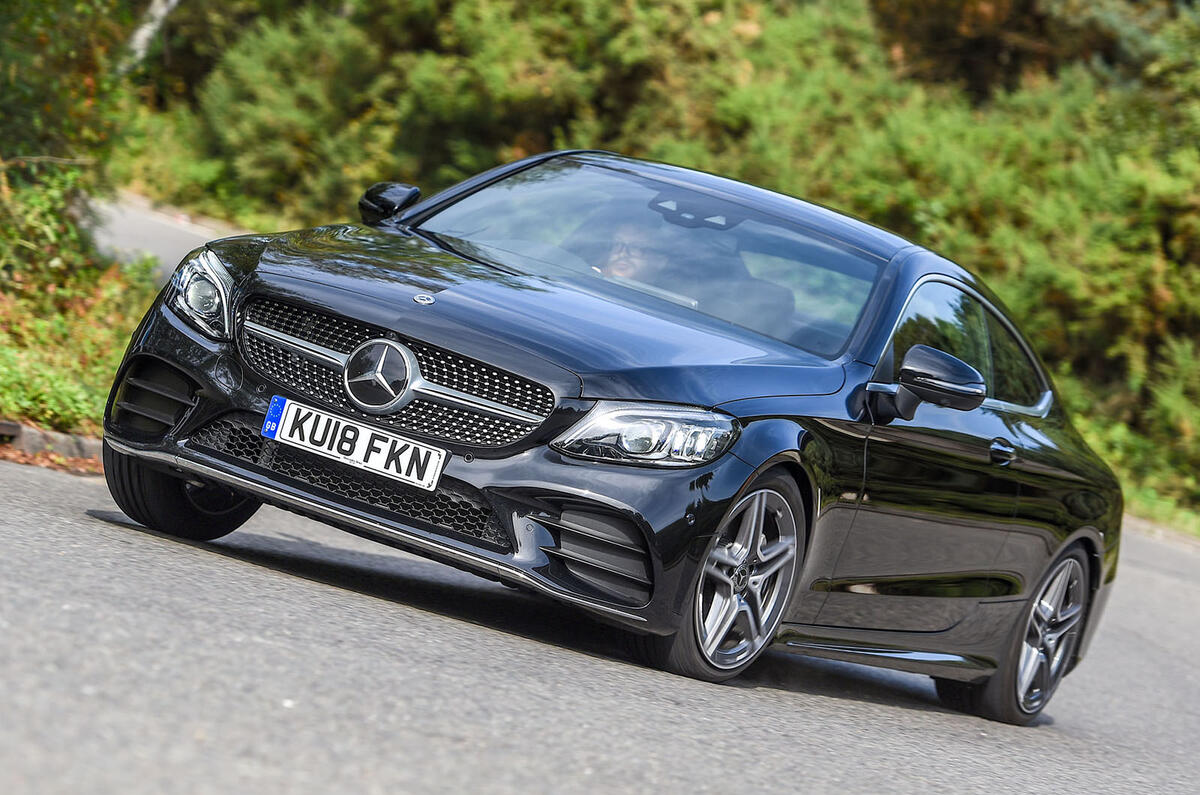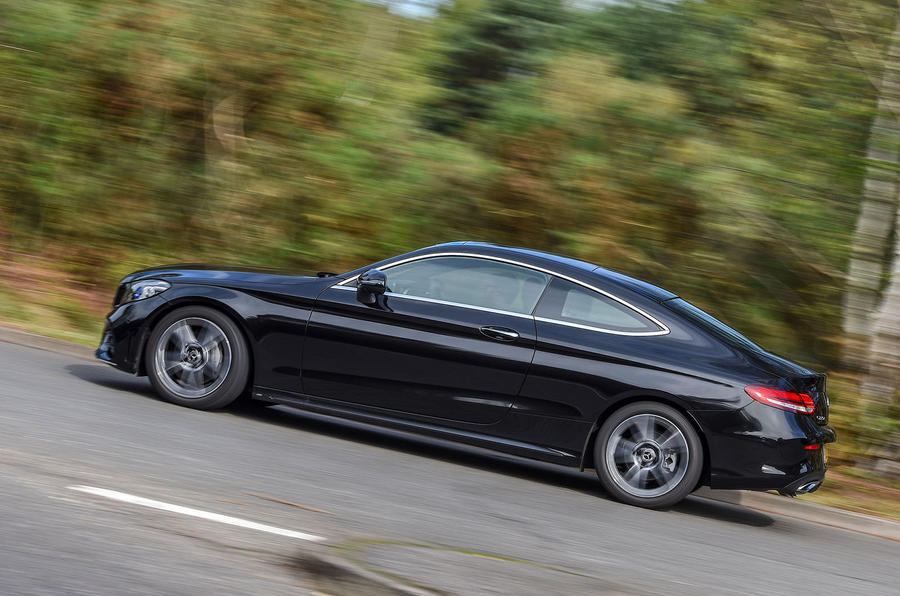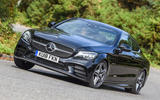It will come as no surprise that the two-door Mercedes C-Class Coupe finds itself in the minority on Britain’s roads.
Last year, Mercedes sold 8000 of the things - but managed to find homes for almost three times as many W205 Mercedes C-Class (2014-2021) saloons. We at Autocar feel that’s a shame, as with styling inspired by the significantly pricier Mercedes S-Class, the Coupé perhaps fulfils the laid-back luxury brief even better than the four-door.
That’s especially true in this facelifted form, which is the first to use Mercedes’ entry-grade diesel engine. The all-new turbocharged 2.0-litre four-cylinder replaces the outgoing 2.1-litre unit, gaining an extra 24bhp for a total of 191bhp.
It delivers the same 295lb ft of torque as before, but promises greater refinement and efficiency. Mercedes expects it to be the most popular choice for saloon customers, and it stands to make an impression on coupé buyers as well.
It’s tested here in sportier AMG Line trim, and with the optional Performance Plus package that adds a whole host of extras including panoramic sunroof, 12.3in digital instrument cluster, uprated stereo system and distinctive interior ambient lighting.
How does the C-Class Coupe perform on the road?
Sitting lower than the saloon and with a far sleeker chassis, the C220d certainly gives the impression of a sportier C-Class. The AMG Line trim of our test car borrows much of its styling from Affalterbach’s most potent models, although the engine badge on the swooping rear end says otherwise.



























